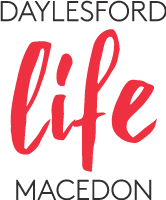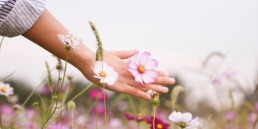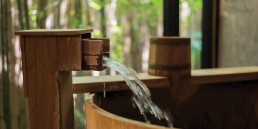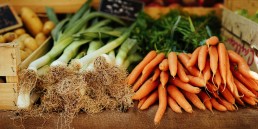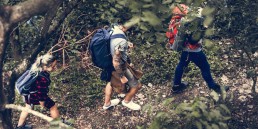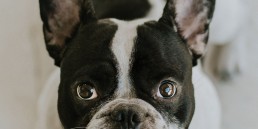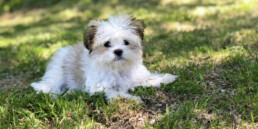The drive towards sustainability by businesses across the region is on the increase. And it brings rewards: a farm wins a prize for its produce while a stylish getaway is judged the best in the nation.
The villas of Clifftop at Hepburn were judged the best of 55,000 (2019) in Australia by holiday home website Stayz. Recycled materials abound in the three stand-alone villas and four opulent cabins perched atop a Doctors Gully in Hepburn Springs.
Water-tanks carry eye-catching murals and there are quirky touches throughout, including a stunning bath made from reclaimed Tasmanian blackwood, repurposed shipping containers, and vanities crafted from old railway sleepers.
“We are trying to be as sustainable as possible,” says owner David Penman, who set up the villas five years ago in defiance of his bank’s advice. “If we build it, we thought, everyone will come,” he says, and his occupancy rates prove him right.
With an eye to the future, he has installed a Tesla electric car charger. One motorist offered money to use it and was dumbfounded when told it was free. David is a huge fan of sustainable and affordable accommodation. Luxury, he says, need not cost the earth.
Giving animals bound for the plate the best possible life, means superior flavour and provides a diner with the belief that what’s being eaten was raised in the fresh air with a natural grazing environment and soil health.
That’s the concept behind Brooklands Free Range Farms at Blampied near Daylesford, where at any time roam 80 cattle and 150 pigs.
And it must be working: the beef took out a gold medal in the 2019 delicious. Produce Awards.
“It’s a matter of keeping up with demand,” says Natalie (“Nats”) Hardy, who runs the farm with husband Jono Hurst and their 14-year-old daughter and “pig whisperer” Ruby.
The rare breed Berkshire pigs and British White grass-fed cattle have 270 acres on which to spread themselves within view of volcanic Mt Kooroocheang.
Nats’s background is the veterinary industry, while Jono was raised on the family generational farm in New Zealand and moved to Australia managing several top Melbourne restaurants. There’s a further food connection: during five years in London, Nats worked at the luxury event caterers, (“Just add”) Mustard.
Their regenerative farming methods have built up the soil health, “looking after the bugs, microbes and funghis,” says Nats. They work on capturing carbon and drill seed using multi-species pasture.
Over at Bullengarook, Hayley Connor has built up The Rook Blooms over three years from just four flower beds to 21, supplying florists locally and in Melbourne.
Ranunculus and dahlias are the mainstay of this four-hectare property, 6km west of Gisborne.
She and husband Daniel bought the farm as a lifestyle property, moving from Werribee. “I thought I’d give it a crack,” she says.
Hayley noted the great number of flowers being imported and steadily began growing them, avoiding the use of chemicals. “We try one bug to see if it kills another bug, such as aphids and mites,” she says.
The village of Trentham is home to many fascinating shops, cafés, restaurants and pubs. Among them is The Green Store, which moved from Melbourne to Trentham four years ago.
Owner, Rhonda Watson, has just built a home there with her daughters Kasie and Stephanie. ‘Australian made’ is high on the agenda, with pure and natural ingredients from sustainable and ethical producers.
Daughter Steph has come from a fashion background, creating soft furnishings, textiles and bags from upcycled and salvaged materials. In the store, at any given time, you may find funky socks, bath salts, gifts, mugs and cups, lots of goods made from recycled waste such as tea towels, gardening gloves and tools, with sustainable kitchen cleaners nearby.
Next year The Green Store will expand to offer an infra-red sauna to helps those who badly feel the cold. Infra-red has been known to detoxify, aid in weight loss, relieve sore muscles and joint pain, improve complexion and circulation. Given Trentham’s snowy winters, that could be quite a few people in this seven-days-a-week business.
What carries water and is 100 per cent recyclable? The answer is aluminium, which, when recycled, uses just five per cent of the energy used to create new aluminium and emits only five per cent of the greenhouse gases in the process.
That’s part of the driving force behind Wallaby Water, which, since March, has packaged natural spring water in aluminium cans from Mount Buninyong near Ballarat.
Says Wallaby Water Founder and CEO Dominic Goldsworthy:
“If you find yourself glancing at any supermarket shelf, you’re likely to feel as though you’re drowning in a sea of plastic.”
So far, just 9.5 per cent of all plastic is recycled, while about 75 per cent of all aluminium produced is still in use.
“We are receiving enquiries from businesses that consume two to three million plastic bottles annually, and we can’t believe the enthusiasm for the product,” exclaims Dominic.
Photo: Clifftop at Hepburn clifftopathepburn.com.au
Brooklands Free Range Farms @brooklandsfreerangefarms
The Rook Blooms therookblooms.com
The Green Store thegreenstore.com.au
Wallaby Water wallabywater.com.au
Share this article
While You're Here
4 Ways to do a Digital Detox
Switch off, relax and reconnect with what really matters in the beautiful Daylesford and Macedon…
The Art of Bathing
In the west, a bath is a place we go to cleanse our body. In Japan, one bathes to cleanse the soul.
Growing Season
One of the simple joys of visiting the country is throwing a few coins into a roadside honesty box…
Best Short Walks
Need a natural health kick? Since the late 1800s people have visited the Daylesford and Macedon…
Summer
Just the name evokes thoughts of long, balmy days, playful breezes and long, cool drinks.
Paws and All
As my family walked around the Daylesford Sunday Market last weekend, Lulu, our Maltese Shih Tzu…
